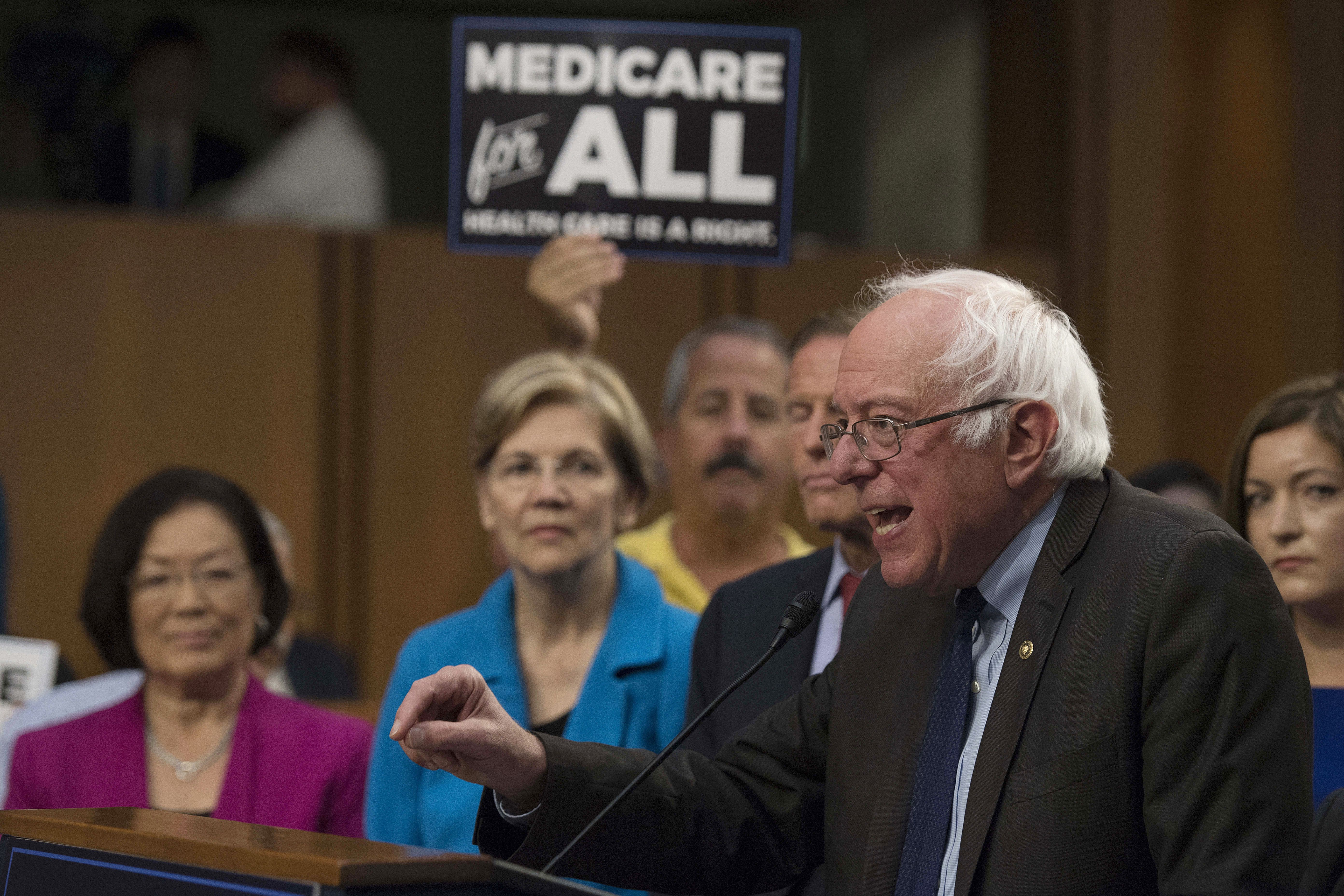Two new health-care plans were released today, and they could not be more different.
On Wednesday morning, Senators Lindsey Graham (R-South Carolina), Bill Cassidy (R-Louisiana), Dean Heller (R-Nevada), and Ron Johnson (R-Wisconsin) formally released the Graham-Cassidy-Heller-Johnson proposal (which I’ll refer to as the Graham-Cassidy proposal from here on out). The proposal, which Graham and Cassidy sketched out back in July, would repeal the Affordable Care Act’s mandates and the medical device tax, and eliminate federal funding for the Medicaid expansion population, premium tax credits, and cost-sharing reduction payments. In place of that funding, the federal government would instead give each state a block grant, which states could then choose to spend on things like premium subsidies, high-risk pools, or reinsurance programs, or other forms of health-care spending. The proposal has not been scored by the Congressional Budget Office, but an analysis by the Center on Budget and Policy Priorities, a liberal think tank, estimates that it would “cause many millions of people to lose coverage, radically restructure and deeply cut Medicaid, and increase out-of-pocket costs for individual market consumers.”
The proposal’s sponsors argue that their proposal puts states in charge of health-care policy, allowing liberal states to keep much of the ACA and conservative states to craft their own systems. Analysts, however, point out that liberal states would be hard-pressed to maintain coverage gains given steep cuts in federal funding.
Meanwhile, way far over on the opposite side of the aisle, Senator Bernie Sanders (I-Vermont) finally released his long-awaited single-payer plan. The plan, dubbed “Medicare for All Act of 2017,” rests on a massive expansion of the Medicare program. It’s light on details about actually financing such a system, but heavy on promises. Under the Sanders plan, every American would get comprehensive coverage for medical, dental, and vision care, and would face no out-of-pocket costs (except for prescription drugs). This is, as Sarah Kliff of Vox points out in her excellent explainer, a good deal more generous than single-payer plans in other developed countries.

(Photo: Jim Watson/AFP/Getty Images)
In an op-ed published in the New York Times this morning, Sanders laid out his case for single-payer. “Americans should not hesitate about going to the doctor because they do not have enough money,” Sanders writes. “They should not worry that a hospital stay will bankrupt them or leave them deeply in debt.”
Neither of these proposals stand much chance of ever becoming law in the near future. Thanks to a ruling by the Senate’s parliamentarian, the GOP has until September 30th to pass ACA repeal legislation via reconciliation (after which point they would need 60 votes to make any changes to the ACA). Passing Cassidy-Graham, which hasn’t even been scored by the CBO yet, in such a time frame would be (nearly) impossible. Nor do GOP leaders seem particularly interested in wading back into the ACA repeal debate anytime this month. Likewise, Medicare for All will never become law with a Republican Congress or president. Even if Democrats regained control of all the levers of power in Washington, D.C., in 2020, there are plenty in the party who aren’t keen on expending enormous amounts of political capital on a bruising single-payer fight.
Still, the release of these two plans on the same day is a jarring demonstration of just how far apart Republicans and Democrats are when it comes to health-care policy. The Graham-Cassidy proposal is the only GOP ACA replacement left standing. It is, in Johnson’s words, the party’s “last shot” at fulfilling its promise to repeal and replace the ACA. Meanwhile, Sanders’ single-payer plan has the support of 16 Democratic Senators, many of whom are viewed as likely contenders in the 2020 presidential election. The proposal’s broad support suggests health care will remain a hot topic for the Democratic Party in future election cycles.
The GOP may have failed to repeal the ACA, but health care’s status as a political wedge issue, it seems, isn’t going away any time soon.





